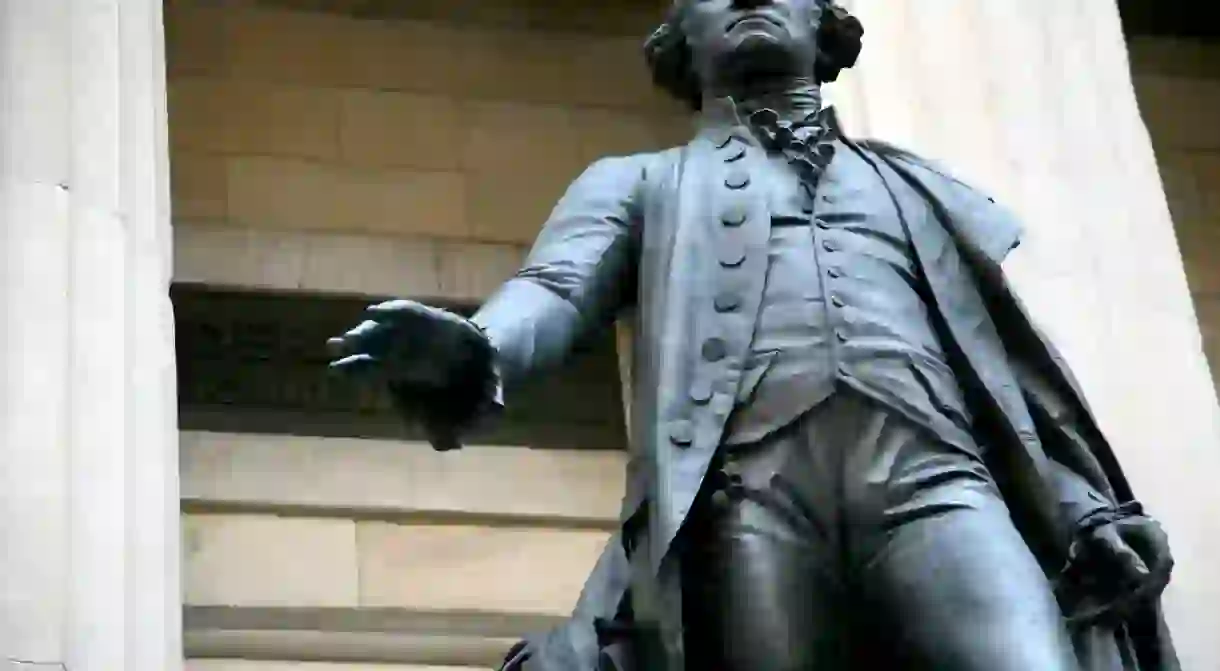8 Books About New York Politics You Need to Read

No city boils down American themes to the quintessential nub like New York. Just as the city is a testing ground for individuals hoping to make a go of it in the wider world, so to it provides politicians with a crash course in governance. And with its vast ethnic, architectural and demographic contrasts, it presents enough complexity to have produced more than a few classic studies on the subject. While the foremost literary chronicler of the American political machine — Joan Didion — mostly kept to D.C. and California, New York-specific political nonfiction can boast one bona fide masterpiece (Robert Caro’s The Power Broker) and quite a few book-length histories that can offer a broader scope than the usual narrow political biography or tell-all. To help you find your way through the glut, find below a few of the most comprehensive tours through the city’s tangled elections, inter-borough battles and core issues.
The Power Broker by Robert A. Caro
The place to begin for understanding the secret life of the American city is The Power Broker by Robert Caro, a towering achievement of biography that excavates the career of Robert Moses, the man who shaped New York as we know it. More than a mere developer, Moses was a charismatic and divisive politician whose highways, parks and urban sprawl illustrate a rise and fall unprecedented in American lore.

The Closest of Strangers by Jim Sleeper
An essential look at the fragility of race relations in post Civil Rights New York, Jim Sleeper’s The Closest of Strangers takes up that essential New York characteristic — proximity — in this page-turner of a civil document that lays bare the human cost of urban blight, crime and community outreach between black and white New York.

Ladies and Gentlemen, the Bronx is Burning by Jonathan Mahler
The basis for a well-regarded ESPN miniseries, Ladies and Gentlemen, the Bronx Is Burning: 1977, Baseball, Politics, and the Battle for the Soul of a City is Jonathan Mahler’s account of a turbulent year in the life of a city as he connects the dots between Studio 54, Reggie Jackson, Ed Koch and the Son of Sam Killer to present a complex cross-section of New York on the brink of disaster.

To Be Mayor of New York by Chris McNickle
Focusing on the role played by race in New York mayoral politics, Chris McNickle’s To Be Mayor of New York details the history of the office from Tammany Hall to explosion in emigration that altered the voter base forever. The book is also notable for its insights into the LaGuardia administration and others, right up to the election of David Dinkins in 1989.

Gotham by Edwin G. Burrows and Mike Wallace
This exhaustive omnibus history of New York goes back to the beginning of the city’s foundations for the full history of its growth from tribal lands to the pioneers and industrialists that shaped it and whose names still adorn its streets. Gotham is particularly concerned with the political brass and their detractors and winds up delineating, from this regional reckoning, the story of a country.

The Island at the Center of the World by Russell Shorto
The little-known pre-history of New York as the Dutch colony of New Amsterdamn is brilliantly delivered in Russell Shorto’s The Island at the Center of the World: The Epic Story of Dutch Manhattan and the Forgotten Colony That Shaped America, which utilizes a 12,000-page archive of pre-British New York to tell the political history of Peter Stuyvesant and the colonists whose efforts prefigured the reigning metropolis of America.

The Locals by Jonathan Dee
Post 9/11 politics drive the fictional events of Jonathan Dee’s novel The Locals, which follows the election of a New York hedge fund manager to mayor of an upstate New England blue collar city. Class divisions run rampant as the housing crisis, rural/urban tensions and the new authoritarianism are tapped for this speculative, yet contemporary, work of realism.

On the Abolition of All Political Parties by Simone Weil
Well here’s something we can all agree on. Simone Weil might as well have been speaking directly of New York politics in this timeless essay on the threat to democracy from within. Her book foresaw the high cost of partisan politics, the threat to journalism and neoliberalism in 1957’s On the Abolition of All Political Parties.














